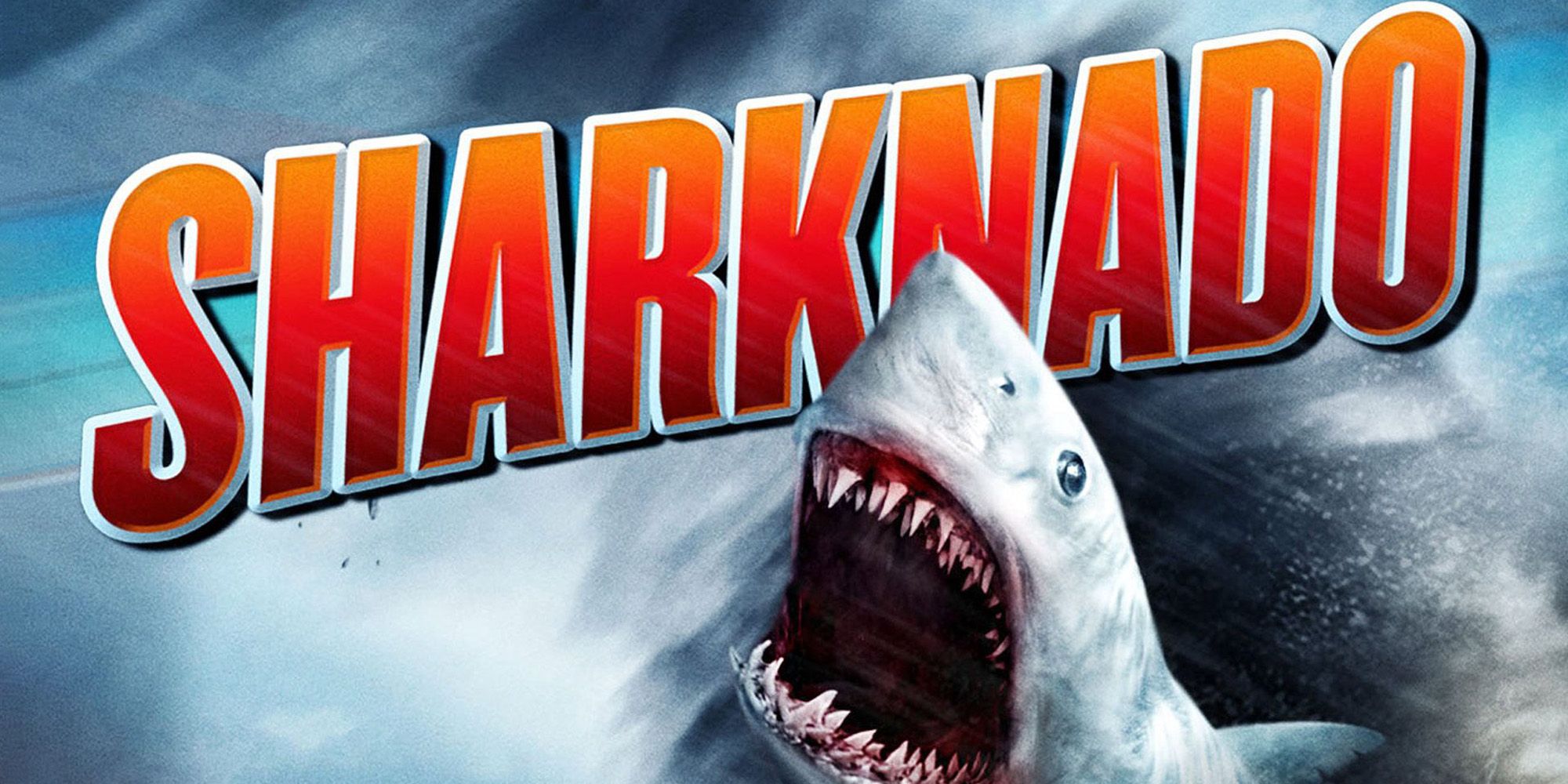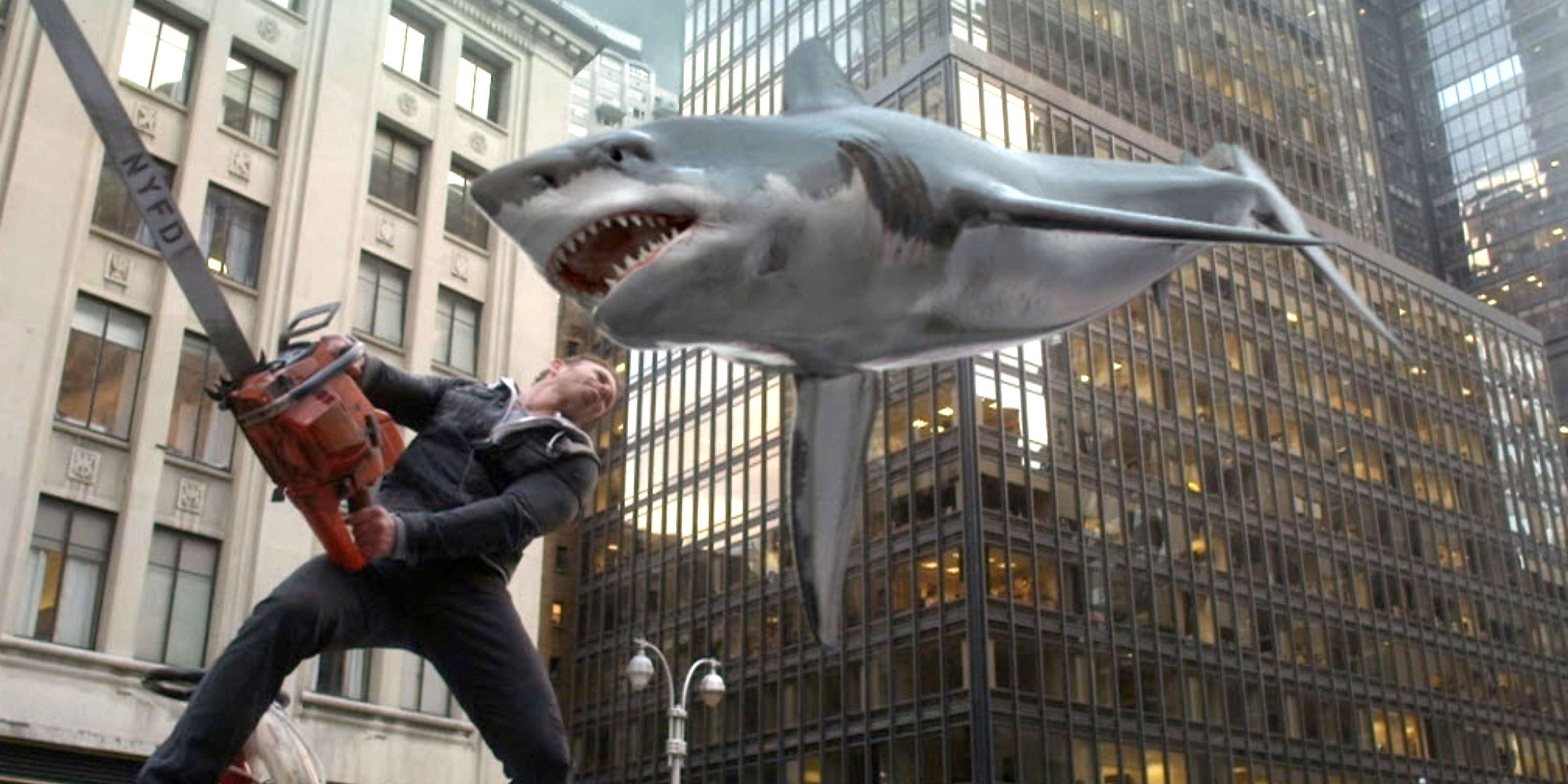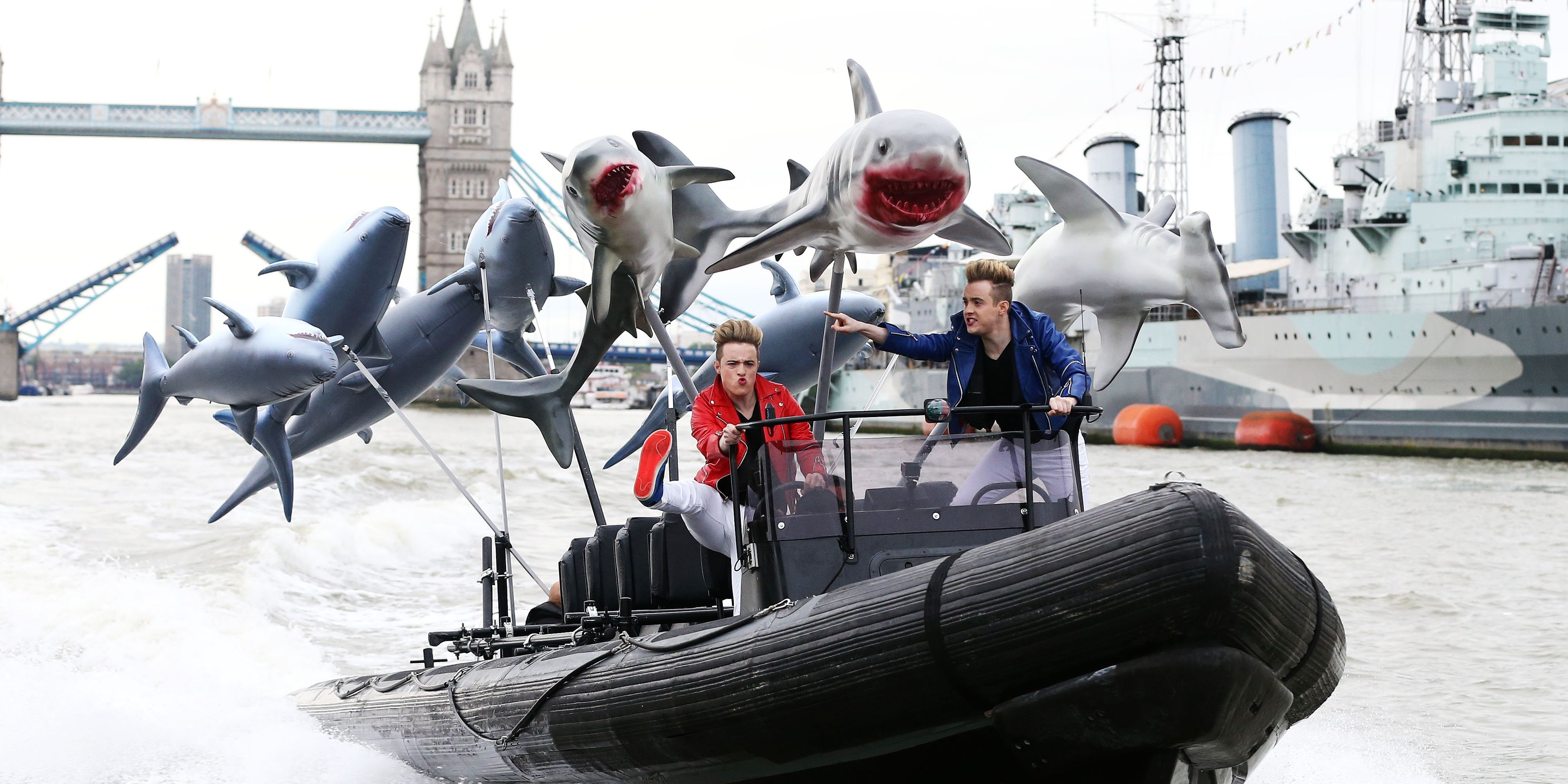Sharknado is one of those movies that is much more a cultural moment than it is a cinematic experience. Everyone knows what the film is bringing to the table, even if a single-digit percentage of people have actually seen it from start to finish. This stunningly long franchise comes courtesy of Anthony C. Ferrante, known almost exclusively for this series and similar Syfy channel fare. He's been all over the low-budget horror world, from acting to writing to directing. His work has also delved into the even less tasteful realm of knock-off films like 2013's Hansel & Gretel.
The plot of Sharknado is no mystery, and not just because it's in the title. A tornado sweeps over the Pacific Ocean, flooding the city of Los Angeles and picking up countless large sharks along the way. A group of vapid half-formed characters tries to survive the storm and the sharks, then develop a plan to blow up the tornados.
This works for no adequately explained reason, some characters die, others end up together happily ever after. It's blisteringly simple, which only works in its favor. The film isn't praised for literally any aspect of creative or technical effort, nor does it deserve to be. It isn't a good movie, even when people are actively praising it, they acknowledge that fact. The reason it's not only fair but necessary to point out Sharknado's bold and cocksure lack of quality is that it's the draw and the genre of the film.
The so bad it's good film movement was likely originated by the beloved cult series Mystery Science Theater 3000 and its modern incarnations and offshoots like RiffTrax. The iconic comedy mainstay took low-budget films most would either ignore or despise and repurposed them as fodder for hilarious jokes. This format lives on today, both in the continued efforts of the original team and in a thousand podcasts, YouTube channels, and film review articles. Today, no film of any quality escapes the mocking of its audience, but some films are still special targets. Many people have their favorite bad movie, from classics like The Room to the ineffable work of Neil Breen. Sharknado is, arguably, what happens when a studio and a director conspire to specifically craft a film for the so bad it's good crowd.
Syfy has produced several hundred low-budget independent films to be released directly to their cable network. A huge percentage of them are crafted by The Asylum, a low-budget film studio best-known for crafting "mockbusters". Their output is typically governed by whatever big movie is coming out around the same time. They see Transformers, they put out Transmorphers. They see Pacific Rim, out comes Atlantic Rim. During the High School Musical craze, they tried to branch into the Christian market with Sunday School Musical. They've been threatened or hit with legal action by studios multiple times, but neither side deserves any particular sympathy. They're less famous for their debatably original films, but they do produce quite a few. The question is, why this film, rather than any of the other thousand films about deadly sea creatures on the same network?
Ghost Shark, Sand Sharks, Dinoshark, Ozark Sharks, 2-Headed Shark Attack, 3-Headed Shark Attack, 5-Headed Shark Attack, Sharktopus vs. Whalewolf, Mega Shark vs. Mecha Shark, and we've barely scratched the surface of Syfy shark movies since 2010. The six-part Sharknado franchise is only one corner of this onslaught of aquatic creature features. The first Sharknado film actually underperformed by the frankly absurd standards of Syfy original films.
This is not shocking, most of their movies come and go, but social media saved Sharknado. Watchmen creator Damon Lindelof, Star Trek star Wil Wheaton, and Tron: Legacy star Olivia Wilde were only a few of the big figures talking about the absurdity of the film. The social media fervor led the network to air the film a second time, then a third. Each saw a tremendous increase in viewership. Soon the National Weather Service and the Red Cross incorporated jokey references into storm safety messages. The film had taken on a new life in the public.
Within the month, the film went from one disposable film on the pile to a social media phenomenon, on the sheer comedy of premise alone. The film found the sweet spot, absurd enough to be funny, but not so ridiculous as to be inaccessible. A film like Sharktopus is probably weirder than Sharknado, and no less well-made, but its elevator pitch just doesn't grab people. Sharknado enjoyed a brief theatrical run, along with an almost comical amount of merchandise. Even RiffTrax, composed of former Mystery Science Theater 3000 stars, took the film on a national tour making jokes at its expense. It was an overnight phenomenon, thanks almost entirely to people making fun of it on social media.
The sequels, though numerous and largely identical, never lived up to the original film. It's debatable whether The Asylum intended Sharknado to be a hit in the same model as The Room or Birdemic, but that's the fate it enjoyed. Sharknado would've been swept under the wave of its peers if it weren't for people dunking on its obvious flaws on Twitter. So be careful the next time a bad movie comes up to be roasted, it might just become a cultural touchstone.



